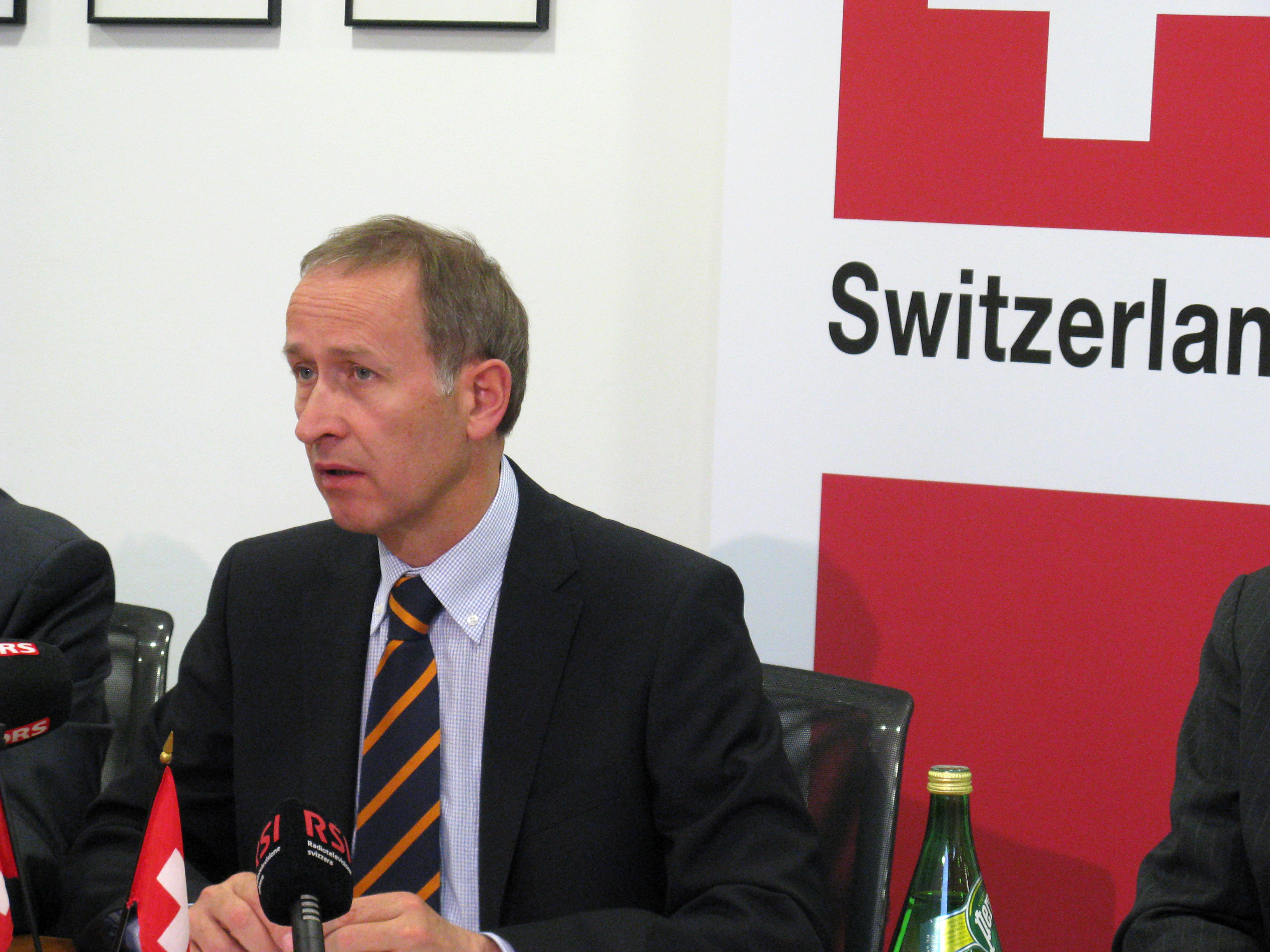US deal must be ratified, official warns

A top Swiss official has warned of “dire consequences” if parliament fails to ratify a key deal with the US over tax fraudsters next month.
Michael Ambühl, who heads the recently created international financial and tax matters department in the finance ministry, spoke to journalists on Tuesday at the end of a hectic two-day visit to Washington.
It was his first visit to the United States capital since his appointment in January. He met representatives of the US Justice Department and the Internal Revenue Service (IRS), and got a better understanding of US thinking on the agreement reached with the Swiss government last August, which lifted the threat of legal action against bank UBS to force it to hand over confidential client data.
Under the deal signed on August 19, 2009 by the governments of the two countries, Switzerland has until August 20 to process the US request for administrative help over 4,500 client accounts held by US citizens at UBS. The deal will be put to the Swiss parliament for ratification on June 7.
At a media conference organised by the Swiss embassy, Ambühl told swissinfo.ch that the US authorities attached “a great deal of importance” to the ratification by the Swiss parliament of the agreement on UBS.
“They want Switzerland to meet its obligations as set out in the agreement and to supply the United States with information about US clients of UBS,” he said.
“The Americans told me that they were keeping all their options open as to how they would react if our parliament rejected the agreement.”
Consequences
Ambühl warned that if parliament rejected the agreement, this would have “serious political, economic and legal consequences for Switzerland”.
“Switzerland would lose credit, the ratification by the US Congress of the dual-taxation agreement would be put at risk, there would be a danger of a legal conflict between Switzerland and the United States which would create insecurity for Switzerland as a financial centre, and it would damage Switzerland’s image.
“If parliament were to reject the UBS agreement, you can just imagine the headlines in the New York Times and Financial Times, along the lines of: ‘The Swiss parliament protects tax fraudsters’!”
It’s true that the dangers cannot be quantified exactly, Ambühl admits. But for him that is not the real issue.
“The decisive question is this: is it worth protecting very serious tax shortcomings by a few American millionaires ? And the answer is obviously that it is not worth Switzerland running such a risk.”
At this stage parliament appears likely to reject the agreement. The centre-left Social Democrats and the rightwing Swiss People’s Party are both opposed to ratification, for different reasons.
The Social Democrats want stricter rules on banks in return for their approval, while the People’s Party is against the deal on principle.
Ambühl said it was “too early to make a prediction” about the outcome of June’s vote.
Road map
Last month the Swiss government presented a road map with proposals of how to limit the dangers posed by large banks such as UBS.
These include a demand that the large banks should hold more equity capital and liquid assets and that risks should be better spread. The government has also undertaken to put a ceiling on management bonuses in the big banks. But it does not plan to submit these measures to parliament until next spring, and they would only come into force in 2012.
Asked by swissinfo.ch what the government was planning to do before June to avoid a “no “ vote in parliament, Ambühl said that “the government has explained clearly to parliament what is at stake and has also explained clearly what it intends to do about bankers’ bonuses and about banks which are vital to the system – those which are ‘too big to fail’.
“The government is being 100 per cent transparent and it is now up to parliament to face up to its responsibilities.”
Marie-Christine Bonzom in Washington, swissinfo.ch (Adapted from French by Julia Slater)
Michael Ambühl was born in 1951. He is from canton Bern.
He studied management science and applied mathematics at the Federal Institute of Technology Zurich and has a doctorate in technical sciences.
From 2005 to 2010, he was State Secretary and Head of the Directorate of Political Affairs at the foreign ministry.
He played a role in mediation efforts on Iran’s nuclear programme and helped negotiate a gas deal between Switzerland and Tehran
He led last summer’s negotiations concerning bank UBS in the US.
He took up the newly created post of State Secretary for International Financial and Tax Matters on March 1, but continues to work closely with the foreign ministry.
During his trip to the US, Ambühl met:
Doug Shulman, head of the IRS
John DiCicco, acting assistant attorney general
Lael Brainard, Under Secretary of the Treasury for International Affairs
Two special assistants to President Barack Obama:
David Lipton, senior national security advisor on international security affairs and Michael Froman, deputy national security adviser for international economic affairs
The UBS deal was signed by the Swiss and US governments on August 19, 2009.
Switzerland has agreed to hand over information about 4,450 UBS accounts held by US citizens presumed to have evaded taxes.
The deal still has to be ratified in parliament.
The vote is due on June 7.

In compliance with the JTI standards
More: SWI swissinfo.ch certified by the Journalism Trust Initiative













You can find an overview of ongoing debates with our journalists here . Please join us!
If you want to start a conversation about a topic raised in this article or want to report factual errors, email us at english@swissinfo.ch.